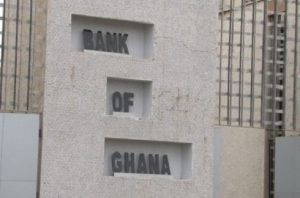
The Bank of Ghana (BoG) has revealed that provisional data on government fiscal operations in the first quarter of 2017 indicate a cash deficit of 1.5 percent of gross domestic product (GDP), consistent with the set target for the period.
Cash deficit means a situation where the cash outflows exceeds the cash inflows.
The Governor of BoG, Dr Ernest Addison who revealed explained: ” This was on the back of improved expenditure alignment to revenues. Total revenue and grants fell short of target by 14.3 percent, while expenditures remained broadly contained at 11.5 percent and below programmed target”.
” Total revenue and grants for January to March 2017 amounted to 4.1 percent of GDP as against a budget estimate of 4.8 percent. Total expenditures, including arrears clearance was provisionally reported at 5.6 percent of GDP compared with a target of 6.3 percent”.
Financing for the deficit, equivalent to 1.5 percent of GDP was mostly from domestic sources, including drawing down on government deposits with the Bank of Ghana.
Adding to the development, the Minister of Finance, Ken Ofori-Atta, lamented: “The challenge with our economy is simple. We are spending more than we are generating and borrowing to finance those expenditures”.
He continued: “Over the years, revenue generation has become stagnant due to many factors. In the meantime, we earmarked a significant portion of the revenues. Added to that is an increasing expenditure especially in wages and salaries and interest payments”.
Mr Ofori-Atta noted: “This situation led to very limited investment in the critical sectors of the economy; the provision of needed infrastructure and investment in the real sector to generate and facilitate economic activity and create opportunities for people”.
“What we saw was a persistent and consistent decline in economic activity and increased unemployment”.
The impact was high inflation, high and unstable exchange rates, high interest , scarce and expensive credit for private sector to invest.
This situation was compounded by poor service delivery and complex and unfriendly regulatory requirement with regards to business licensing and granting of permits. This led to a loss of confidence by investors and private sector.
However, Mr Ofori-Atta said: “We are determined to change this narrative by working around the five key pillars to increase revenues, reduced exemptions, stop leakages and simplify tax process to ensure compliance”.
By Masahudu Ankiilu Kunateh, African Eye Report




